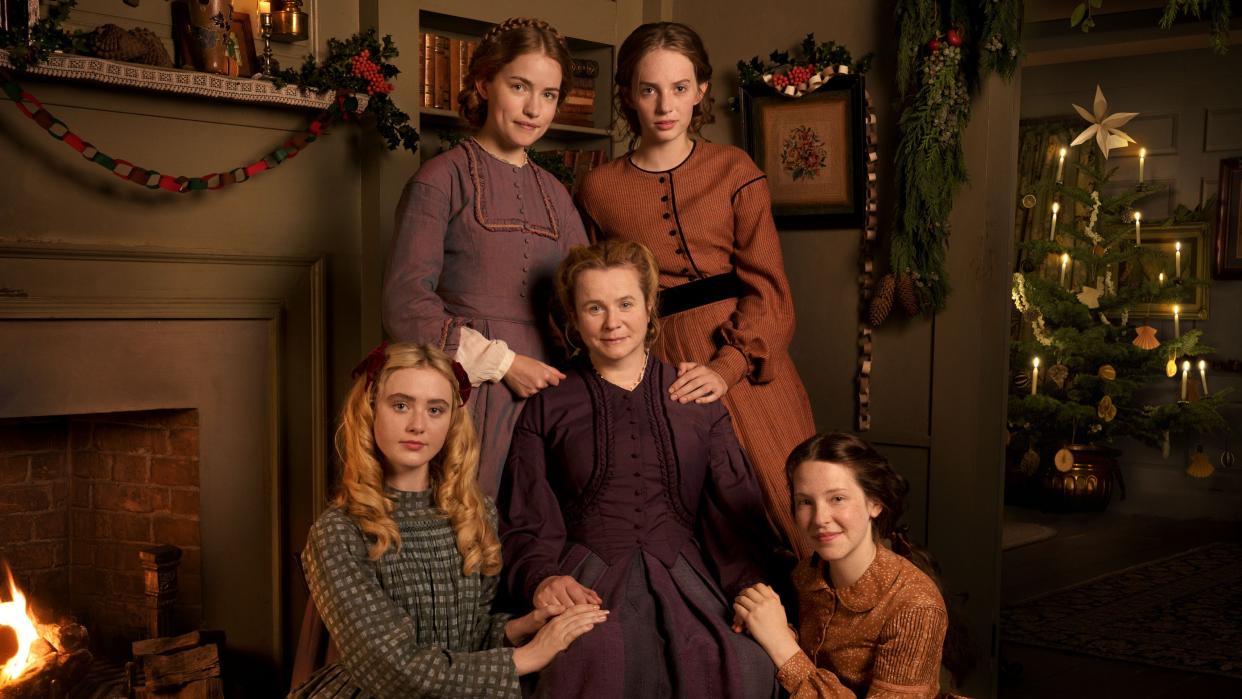TV Review: ‘Little Women’ on PBS

When the three hours of PBS’ “Little Women” finally draw to an end, it feels less like a coming-of-age saga than a mystery. How it is possible to make Louisa May Alcott’s beloved classic so dull that you start to envy the characters who die of scarlet fever?
Although snuggled on the couch watching Marmee raise four independent daughters sounds like the perfect end to Mother’s Day, the biggest takeaway from the two-parter is endurance. Years on screen pass in what feel like real time.
It’s particularly disappointing because “Little Women” is from the same station that brought us “Downton Abbey.” Like that hit drama, this new production boasts a dream cast along with another eternally quotable old diva. That’s Aunt March, played with magnificent imperiousness by Angela Lansbury, wielding power by lording her wealth over all. Castigating her grandniece Meg for daring to fall in love with a poor tutor, she pronounces such emotion as the “spice of perversity, and leads to hot heads and bitter reflection.”
Naturally, Lansbury, at 92, can do whatever she wants; no one would complain if she decided to go for camp. Yet she delivers a disciplined, delightful performance. Unfortunately, she’s also one of the film’s few highpoints.
The story begins in Massachusetts during the Civil War, when the kind, literate March family is barely scraping by. Their father, played by the dependably solid Dylan Baker, is a pastor, ministering to soldiers on the front. Emily Watson, who radiates wisdom, stars as Marmee, lovingly rearing her four little women.
Meg, the eldest, works as a governess. The angelic Beth, always frail, helps around the house. The baby of the family, Amy, is a manipulative coquette, still attending school. Our hero is Jo (Maya Hawke), Alcott’s character. The second-eldest daughter, she loves her family fiercely, wishes she had been born a boy, only wants to write and fears no one or thing. Her job is an onerous one, keeping Aunt March company.
One hundred and fifty years after the novel’s publication, Jo is still a wonderful role model. Wise beyond her years, her only flaw is her impetuousness. She shocks people only because she has the gall to be a female with a temper, and a mind of her own.
Next door, life is far more staid, where two men live quietly in a well-appointed house. Laurie (Jonah Hauer-King), a very handsome orphan, has come to live with his rich uncle, played by Michael Gambon. Hopelessly besotted with Jo, Laurie waits years for his love to be requited. Jo does not feel the same and stays true to herself.
It’s only one of the great lessons in a story rife with them: Women are strong and independence is vital. Everyone must work hard. Money is not more important than art or love. They were radical messages in Alcott’s time and reverberate louder today.
If only this production relayed them with faster pacing. The camera plods along, lingering on pretty shots of nature. A bee buzzes a flower. Snowflakes fall on a New England square. Brooks babble. It begins to feel less like a drama than a giveaway calendar.
Skilled as the actors are, it’s difficult for them to rise above the creakiness. Hawke is fabulously defiant as Jo. And watching her will remind viewers of her mom, Uma Thurman. All of the March sisters are very good; everyone is. But hard work is not enough.
“Little Women” has been adapted regularly. It’s been a movie six times, with Katharine Hepburn as the most famous Jo in the 1933 version. It’s been an opera, a Broadway play (one revival in 1945 ran all of 16 performances), and a musical starring Sutton Foster. This is the sixth TV version.
Like many BBC productions, “Little Women” is a careful and respectful adaptation; Alcott’s devoted readers will be relieved to know no liberties have been taken with the text. The props, sets and all the details are perfect — particularly the costumes, with their fabric-covered buttons and stiff wool hats.
It’s all as carefully composed as a Victorian parlor. And just as stuffy.
TV Review: “Little Women” on PBS
Drama; 2 episodes; 3 hours (all reviewed) Sunday, May 13 and May 20
Related stories
John Stamos to Return as Host of 'A Capitol Fourth' (EXCLUSIVE)
TV News Roundup: CNN to Air Town Hall with James Comey
Tavis Smiley's Alleged Misconduct Detailed in PBS Countersuit
Subscribe to Variety Newsletters and Email Alerts!

